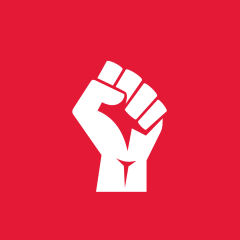LERRN aims to understand and enhance the role of civil society in responding to the needs of refugees. Thematic Working Groups were established by LERRN to support collaborative research that critically engage with emerging issues relating to diversity and intersectionality, protection and solutions.
Archives, Living Histories and Heritage Working Group
In keeping with LERRN’s commitment to responding to, and facilitating research driven by partners in major refugee-hosting countries, the Archives, Living Histories and Heritage Working Group has been formed to pursue the following key objectives:
- Contribute to a rethinking of what constitutes refugee history, by amplifying refugee accounts that tend to be marginalized in state-centric accounts of displacement.
- Raise awareness of refugee experiences and histories through the documentation and dissemination of archival, oral history, museum and other heritage resources and promote the role of refugees as researchers, policymakers and practitioners.
- Respond to and support historical, heritage, archival, and oral history research interests from LERRN partners in the four geographic working groups (Lebanon, Jordan, Tanzania and Kenya).
For full details, please visit the Living Histories and Heritage Working Group webpage by clicking the button below:
Intersectionality and Diversity Working Group
The Intersectionality and Diversity working group examines how various refugee groups encounter global refugee policy, and analyzes power relations across axes of difference such as gender, race, class, age, nationality and sexual orientation. Building on a long tradition in refugee studies of understanding the bureaucratic implications of labels and categories, such as the fraught ‘global South/global North’ binary, this working group also explores how politics, policy, and practices condition the refugee-migrant experience, and how they are social constructions embedded in power relations.
For full details, please visit the Intersectionality and Diversity Working Group webpage by clicking the button below:
Protection Working Group
With the aim of advancing stronger protection for refugees in the Global South, the Protection Working Group seeks to expand our knowledge on refugee protection and the challenges various actors face in achieving this core objective by investigating:
- What are the implications for protection of refugees in protracted contexts of crisis?
- What are the limits of protection for refugees?
- How do other actors, such as civil society organizations, reinforce the rights of refugees and develop new approaches to protection?
- What does protection mean from the perspectives of refugees themselves and is this reflected in the practice of the global refugee regime?
For full details, please visit the Protection Working Group webpage by clicking the button below:
Solutions Working Group
The Solutions Working Group: A core objective of the global refugee regime is to support the achievement of “durable solutions” for refugees, traditionally through voluntary repatriation to their country of origin, integration in the host country or resettlement to a third country. Yet durable solutions for refugees have proven increasingly elusive, with millions of refugees now trapped in protracted displacement. New thinking on the meaning of solutions, and obstacles to their achievement, is needed. The Solutions Working group explores this issue through research on contemporary as well as historical refugee situations.
For full details, please visit the Solutions Working Group webpage by clicking the button below:



